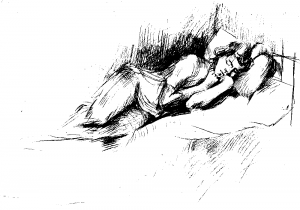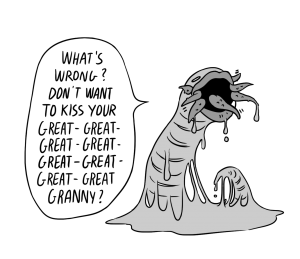Hot Peppers – 12/19/19 An Italian study reported here associates a 25% lower all cause mortality to those who eat hot peppers at least four time per week versus those who fully abstain. Most delightful chili con carne recipe found here. Yum.
Red Meat Gets (Another) Reprieve – 11/19/19 An article in Annals of Internal Medicine, here, concludes that contemporary dietary guidelines are based primarily on observational studies that are limited in establishing causality. The authors instead focused on more controlled studies and found that the evidence that unprocessed or processed red meat caused cancer or any other health issues was very weak.
Exercise Reduces Heart Attacks—A Lot – 11/13/19 Of course we all know this, but some research found here seems to indicate an amazing benefit. The researchers followed 1000 people over 45 for ten years, measuring how well each individual retained their muscle mass. The result was stunning. The top third had an 81% lower rate of heart attacks than the bottom third. That’s a five-fold difference. So get to that local gym and retain that muscle mass.
Good News for Avocado Lovers – 10/14/19 A study here finds that avocado consumption may improve insulin sensitivity, and hence help prevent diabetes.
Joggers Take Note – 9/9/19 A study in the British Medical Journal, here, that running of any sort reduces heart attacks, cancer, and all-cause mortality 25-30%. Running is not the best form of exercise by any means, but already the numbers are far better than anything dreamt up by big pharma.
New Blood Test Predicts Breast Cancer – 2019 Presented at a poster session, researchers are trying to develop a blood test that could predict breast cancer five years in advance. This would certainly be a game-changer if it worked out.
Marathon Drugs Increases Price 70-Fold – 2/10/17 More predation by pharma. Marathon has gotten a decades old muscular dystrophy drug, deflazacort, approved and is charging $89,000 a year for it. It’s price in Europe is under $1500/year. Where are the free market forces? Why aren’t our elected officials protecting us from this egregious practice?
Promising New Prostate Cancer Treatment – 2/2/17 A new and very effective prostate cancer treatment, reported here, has a two-year relapse rate of around 25%. Though clearly not a cure, it has a major benefit in that, unlike all other treatments, it has no. Light fibres are inserted in the prostate, rather like a biopsy, and a light-sensitive drug is administered. The cancerous tissue is killed, and all else left alone. Would certainly be worth a try.
Hypertension Developing Late in Life Halves Onset of Dementia – 1/21/17 Research here indicate that people who develop hypertension in late in life has almost half the reate of dementia. Yet more proof that hypertension has a purpose and unless it is off the charts, is best left alone.
Lowest Stroke Rates in Older Baby Boomers; Younger People Rising– 9/12/16 reports the American Heart Association, here. There could be numerous factors at work. Less smoking among the baby boomers and less healthy diet among the young would be our guess.
Sugar Lobby Promotes Sugar– 11/13/16 Surreal. JAMA reports here that the sugar lobby has been systematically attempting to put the blame for heart diseases on something other than sugar. What were they supposed to do? They’re the sugar lobby. The real question is, “Why did Standard Medicine buy it?”
Zika Breakthrough– 8/30/16 Reported here and elsewhere, two existing (already approved) drugs appear to be effective against Zika. If this pans out, it will speed things up immeasurably.
AHA Limits Added Sugar– 8/17/16 A sensible recommendation from the American Heart Association limits sugar for children aged 2-18 to fewer than 6 teaspoons a day. Paper here. A better recommendation: Fewer than 0 teaspoons added sugar per day for all children aged 0-110.
Calcium Supplements Linked to Dementia– 8/17/16 A report in the journal Neurology, here, links calcium supplements to dementia in some groups of women. The risk, alarmingly, is double for this group.
Suppression of Antioxidants Kills Pancreatic Cancer cells– 7/28/16 Researchers at Cold Springs Harbor Labs find that antioxidants are, in some cases, aiding cancer, and by suppressing the antioxidants, the oxidants are then able to kill the cancer. Link here.
High Cholesterol Found to be Cancer Protective– 7/9/16 A study presented at a British Cardiovascular Society Conference, link here, finds that high cholesterol is significantly protective for four common cancers: breast, prostate, lung, and colorectal. Reasons for this are unknown.
Zinc Acetate Lozenges Reduce Length of Common Cold– 7/6/16 Zinc for a cold is a Dr. Mike favorite. Here’s some science to back it up. A study published here finds that Zinc Acetate Lozenges shorten common colds by three days.
BMJ Article: Bad Cholesterol Isn’t Bad After All– 6/13/16 This is huge. In BMJ Open, here, a peer reviewed study finds that high “bad” cholesterol, aka LDL-cholesterol, is inversely associated with mortality. Higher levels=less death. The stuff is good for you. This is heresy of the first water. Expect a huge blow-back. The lipid hypothysis—that high LDL cholesterol causes heart disease—is ingrained in the medical community like an eleventh commandment. It has never been proven, and kudos to BMJ for daring to run this article. (We would crow that we have repeatedly posted that the dangers of LDL cholesterol were nonexistent, but we will be nice and refrain.)
Stem Cell Injection Reversed Strokes– 6/6/16 At Stanford, reported here, stroke patients receiving injection of mesenchymal stem cells directly into the brain experienced, in some cases, dramatic improvement. If this research holds up, this is an astounding result. “This wasn’t just, ‘They couldn’t move their thumb, and now they can.’ Patients who were in wheelchairs are walking now,” said lead researcher Steinberg.
Bariactric Surgery Now Recommended for Diabetes– 5/26/16 The American Diabetes Association (ADA), and other groups, have now endorsed bariactric surgery (stomach stapling) as a treatment for adult onset or type 2 diabetes (ADOM). We are not making this up. Report here. Of course the ADA dietary recommendations are almost guaranteed to prolong AODM, so we suppose some sort of strange logic is at work here. For the surgery-free, drug-free Quantitative Medicine method, click here.
Low Salt May Be Dangerous – 5/20/16 The prestigious British journal Lancet reports here that low salt intake is more dangerous than high intake. This is heresy, of course, and the article, the magazine, and the authors have already been condemned and will be burnt at the stake. The QM view is that high salt intake is a fairly minor factor. In this article, high intake is worse only for those with high blood pressure, whereas low salt intake is dangerous to those with high blood pressure, and those with normal blood pressure. Again, standard-practice medicine has been making things worse.
JAMA Discovers QM – 5/19/16 The prestigious Journal of the American Medical Association (JAMA) reports here that secession of of smoking, non-heavy drinking, and exercise reduce cancer. Now while it’s wonderful that they have now seen the light, or at least are circling around it, hasn’t this been obvious for the last 50 years? They studied only white males. Are they setting us up for a sequel? Let’s spoil that one: it works for everybody.
Calcium/Vitamin D Causes a Stroke or Heart Attack for Each Fracture prevented – 5/12/16 From a Norwegian study reported here, “Our analysis shows that if 100,000 65-year-old women take 1000 mg calcium every day, 5890 hip fractures and 3820 other fractures would be prevented. On the other hand, as many as 5917 heart attacks and 4373 strokes could be caused.” A horrid tradeoff made worse by the fact that osteoporosis is easily prevented and reversed with no supplements needed. See posts here, here, and here
Medical Error Third Leading Cause of Death in U.S. – 5/3/16 This is not news. As a leading cause of death in hospitals,medical error has been a focal area for almost 20 years. However, findings published here in the British Medical Journal.indicate the the problem is far from solved. Deaths due to medical error represent around 10% of deaths, some 250,000. One problem, according to the article, is that adequate records aren’t kept: the deaths are often attributed to something else. Best strategy: stay out of hospitals.
Big Pharma to World: Take Something! – 4/21/16 From JAMA, here, a trial was conducted for patients who couldn’t tolerate stains.(42%, in fact). The “solution” was to give them ezetimibe, a drug with no known benefit and some probably harm, a drug currently approved for a very, very narrow cohort of off-the-charts high cholesterol. Only 27% could not stand this drug, so the trial was considered a success. The drug industry seems insistent on cramming ezetimibe down our throats. To even embark on this strange experiment shows a callousness and disregard for patient benefit that surprises even us.
Is Fructose Highly Dangerous? – 4/21/16 Maybe. From UCLA we have a finding that fructose is linked to detrimental changes to hundreds of brain genes. Press release here. Scary stuff, and it makes some sense. The body goes to a lot of trouble to keep dietary fructose out of circulation, converting most of it to a concentrated form of glucose called glycogen, and rapidly removing any excess that does get into circulation. The reason for this aversion to fructose is not known, but the research sited above may provide a significant clue. Besides a major sugar component of fruit, table sugar is a 50-50 mix of fructose and glucose, as is high-fructose corn syrup, a ubiquitous food additive.
Are Proton Pump Inhibitors Overprescribed? – 4/15/16 A new report In the Journal of the American Society of Nephrolog seems to indicate that long term use of proton pump inhibitors, which significant reduce stomach acidity, causes increased kidney disease. Such drugs are widely prescribed and are also available over-the-counter. Though likely safe for short-term use, longer term consumption seems to have problems.
FDA Pulls Plug on Combo Drug – 4/15/16 In a rare glimmer of sanity, the FDA has withdrawn approval on a drug called Niaspan, which is a combination of statins and niacin. The approval was made in 1997. Given that is know that statins are practically useless, and that niacin actually increases heart problems, you may wonder what they were waiting for. So do we.Might they now consider the rest of the dangerous drugs out there? Details here.
Interesting Alzheimer’s-Insulin Result – 4/13/16 An NYU business school researcher has connected some interesting dots. It is well know that high insulin is involved in Alzheimers, but the connection wasn’t clear. It seems that the enzyme that breaks down insulin is the same one that breaks down amyloid-beta plaque, the tangled mess that is a hallmark of Alzheimer’s. Schiller’s idea is that perhaps the all the enzyme resources are spent on the high insulin, and the amyoid-beta doesn’t get removed. Details here.
Another Early Cancer Detection Breakthrough – 4/8/16 Researchers at Case Western Reserve University in Cleveland, OH, have created an optical biosensor for cancer detection that is a million times more sensitive than previous versions, pointing the way toward an effective early detection system for cancer and other illnesses.This might greatly improve early detection, which is ket to fighting cancer.Details here.
Choral Singing May Reduce Cancer – 4/5/16 Researchers in Wales have determined that choral group singing improves levels of several anti-cancer hormones and biochemicals. Paper can be found here. In view of the next news item, the song Java Jive should probably be included in the repertoire.
Coffee Reduces Colorectal Cancer 50% – 4/1/16 Researchers at USC report “We found that drinking coffee is associated with lower risk of colorectal cancer, and the more coffee consumed, the lower the risk.” The press release is here. Dramatics reductions of up to 50% were seen. This area has been controversial for 20 years. The mechanism of cancer prevention is unknown, though it doesn’t seem to be caffeine, as decaf works as well.
Early Cancer Detection Breakthrough – 3/29/16 Researchers at UCLA have developed a PET probe capable of producing far better images in certain types of cancers. With cancer, early detection is key. Clinical trials of the procedure may begin this year. Further info here.
Blonds Found to Be Non-Dumb – 3/23/16 A study here has found that blonds have a slightly higher IQ that non-blond people.Quoting,”Blonde women have a higher mean IQ than women with brown, red and black hair. Blondes are more likely classified as geniuses and less likely to have extremely low IQ.” It is hard to predict what researchers will think of to do research on. How about: “Do Blonds Have More Fun?”
Meal Time More Important Than Previously Thought – 3/17/16 Every traveler know that disrupting the circadian rhythm—the sleep cycle— is no picnic. New research from the Weizmann Institute indicates that not only is the body locked into this cycle, but even our mitochondria are. Mitochondria are tiny bacterial like cells found within almost all our own cells that convert the food we eat to energy. They apparently have time-driven hungry states, wherein they are ready and willing to convert the food to energy, and sleepy state as well. This means having meals at a regular time is more critical than previously thought.
Alzheimer’s and Brain Research – 3/17/16 There are almost daily reports of discoveries or possible breakthroughs involving Alzheimer’s and the brain. Just today, there are three such reports, all on mice, and so it is unknown if the results would carry over. There are reports of new neurons grown from stem cells, lost memories reactivate through light flashes, and increasing available neural energy by injecting pyruvate, an intermediate of glucose metabolism. A very active area.
Antidepressants Increase Mortality – 3/16/16 A study from Auburn and University of Alabama show a slight increase in mortality with uses of second generation anti-depressants.Report here. Knowledge of this will likely offset any anti-depression benefit as well. I much stronger anti-depressant that features a very strong reduction of mortality is exercise.
Canadian Medicine Discovers Exercise – 3/14/16 Canadian Medical Association announces: “Many doctors and their patients aren’t aware that exercise is a treatment for these chronic conditions and can provide as much benefit as drugs or surgery, and typically with fewer harms.” Not really. It actually provides A LOT MORE benefit. Bit it’s a step for organized medicine. Next week: hot water.
Exercise Reduces Alzheimer’s 50% – 3/11/16 No surprise at our end. But here, another study demonstrates the most effect way to prevent Alzheimer’s.
Alzheimer’s Caused By Microbes? – 3/10/16 Researchers have reported that a virus and two types of bacteria are a major cause of Alzheimers. A microbial connection has been (and probably will remain) controversial. However, the causes of Alzheimer’s are not known.
Magic Pill Announced – 3/4/16 Drug companies adore lifelong drugs, and the latest “breakthrough” combines statins, blood pressure reducers, aspirin, and adult onset diabetes medication, and is called a Polypill. However none of these four have shown any mortality benefit, and all of them have serious side effects. But in combination, they are suddenly magical? The idea seems to be to get rid of screening and blood testa altogether, and put everyone over 50 on this pill. This idea is so bad, it would be praising it to call it crazy.
Breast Cancer Breakthrough – 3/3/16 A new drug combo is very effective against the HER-2 variant of breast cancer. A fourth of those treated saw dramatic reduction in tumor size, while in an additional 11% the tumor completely disappeared, in under two weeks. Details here.
Television Exposure Directly Linked To A Thin Body Ideal In Women – 2/22/16 The only real question here is: Are they paying grown-ups to come up with this? It’s a real study. Details here. What will they study next? How about: Driving Blindfolded May Increase Accident Risk.
 better off. One study revealed that early risers had more “white matter” in their brain, fatty material, the lack of which is associated with depression and impaired cognitive function.
better off. One study revealed that early risers had more “white matter” in their brain, fatty material, the lack of which is associated with depression and impaired cognitive function.

2 comments for “Chronotype: Are You A Night Owl Or An Early Bird?”